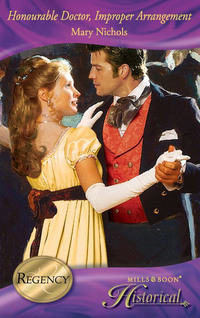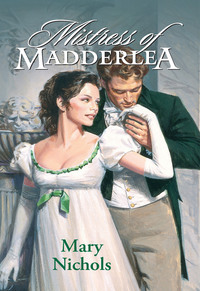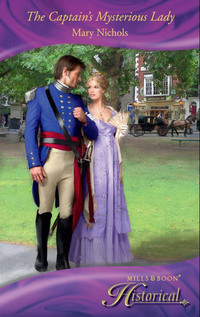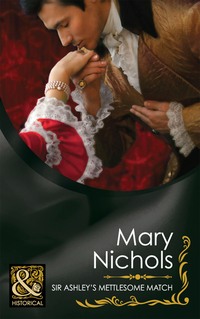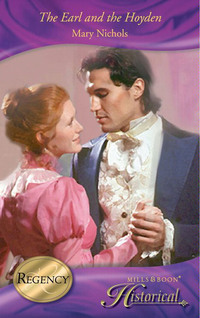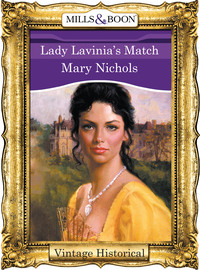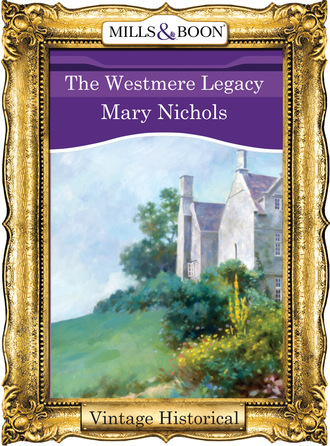
Полная версия
The Westmere Legacy
‘I am sure I can rely on you to choose wisely,’ the Earl went on. ‘Running an estate like Westmere is a grave responsibility. There is not just yourself to consider but everyone who depends on the estate for a livelihood, and that not only means the immediate house and grounds but the villagers. I have always done my best for them…’
‘I know that, Grandpapa, but would it not be best for you to choose your successor and not make it conditional on him marrying me? I would rather earn my living.’
‘Don’t be a goose, child, you are the granddaughter of an earl, not some peasant. And what do you know of the world of work?’
‘I could learn. Grandpapa, please, don’t do this.’
‘My mind’s made up,’ he said. ‘Now finish writing those letters and we’ll send ’em off to the post.’
Bella picked up her pen again with a hand that shook. Could she delay posting them? But how could she? The Earl would expect the young men to arrive, and if they did not, he would send again for them. She wrote slowly and a tear escaped and slid down her cheek to drop with a plop on the letter she was writing. She was hardly aware of it. The old man, losing patience, rang the bell at his side. Sylvester appeared so swiftly she was sure he had been listening outside the door. Oh, what a tasty morsel of gossip this would furnish for the rest of the staff!
‘A glass of brandy, man,’ his lordship ordered. ‘And pour Miss Huntley a cordial. I think she may need it. And then I want you to take my letters to the village and make sure they are put on the mail. Do it yourself, mind. If I find you have handed them over to some stable boy, I shall turn you off, do you understand?’
‘Perfectly, my lord.’ Sylvester poured the brandy from a decanter on a side cupboard, then groped beneath it for the bottle of cordial which was kept there for Bella on the few occasions her grandfather invited her to share refreshment with him. By the time her glass was at her elbow, she had finished the last letter and was dusting it before handing it to her grandfather to sign.
‘Good,’ he said, scrawling ‘Westmere’ on the bottom of each. ‘You write a good hand.’
Hurriedly swallowing her cordial, Bella made her excuses and left her grandfather to Sylvester’s mercies. She needed to get away from the stifling atmosphere of the house into the fresh air, to clear her head and think, to try and make a plan for her future, because assuredly she would need one. Oh, how she wished Miss Battersby would come back. Had her grandfather deliberately timed his announcement knowing she would not be able to turn to the old nurse for comfort and advice?
Grabbing a shawl from her room, she went out into the garden. She hardly noticed the daffodils and gillyflowers in the borders as she wandered across the lawns to the brook which ran along the bottom of the garden, or that the water was very high and lapping the grass. Her mind was on her dilemma. How could she face the men after they had heard what her grandfather proposed? It would be too mortifying to bear.
Would any of them offer for her? Would they show contempt or do as her grandfather said they would and fall over themselves to comply with his wishes? If they did, they would undoubtedly be doing it from the basest motives—money and power and a title—not for any feelings they might have for her. And if she were to accept one of them, her motives would be equally questionable. She needed a home and security and… Surely, her grandfather would not leave her penniless if she refused? Supposing she absented herself from the discussion. Would her grandfather abandon the idea? Supposing she left home? To go where? She did not have another relative in the world and no money. There was no alternative—she had somehow to persuade her grandfather to change his mind.
Bella turned back to the house and saw Sylvester hurrying along the drive towards the village, carrying the four letters which would seal her fate, and she knew it was too late. She had three days to wait and then she would learn the true colours of her grandfather’s great-nephews. Three days and after that…
She did not want to think of that and forced herself to concentrate on preparing for their guests. The next two days she was busy opening up rooms long disused for their accommodation and trying to soothe the ruffled tempers of Cook and Daisy, who had to cope with all the extra work. By the morning when the guests were due to arrive, they were almost mutinous. ‘Hire a couple of footmen,’ her grandfather said when she told him of the problem. ‘You shouldn’t have any trouble—there’s enough men out of work.’
She didn’t bother to argue that most of the men who were out of work were labourers and would not have any idea of the duties of a footman. She hurried to her room, changed into a dark green riding habit and matching hat with its sweeping feather, pulled on her boots and went to the stables to ask for her mare, Misty, to be saddled, glad enough to be free of the stifling atmosphere of the house and enjoy her last few hours of independence.
The grey mare was sturdy rather than elegant but she was game and, because in the last few days the weather had been too inclement to go far, she was in need of exercise. Set to gallop, she responded immediately. As the horse took her across the park, Bella’s thoughts went round and round in her head in time with the thundering hooves, but they always came back to the same thing. Her grandfather’s ultimatum. He must surely have his own preferences about whom he would like to succeed him, but the choice had been left to her. It was an onerous burden she did not want. Was her happiness not to be considered at all? It just wasn’t fair!
Beyond the park, the landscape was completely flat, broken only by an isolated house here and there, a few willow trees and some slowly turning windmills which were used to take the water off the fields and tip it into the dykes that criss-crossed the land. Because of the almost incessant rain since the snow had melted, very little ploughing had been done. Instead of the new green shoots of winter corn making an appearance, the ground was black and soggy and the windmills were kept busy, making sure the ground did not revert to marsh and mere.
She brought Misty back to a trot when she came to the Ely road. Ely was the nearest town of any size and until recently had been a thriving centre of commerce, its roads full of carriages and carts and stagecoaches which called at the several inns in the town, and its quayside busy with wherries and barges bringing in all manner of goods and taking out the produce of the area—grain, fish, vegetables, osiers. But now much of the produce rotted before it found a buyer.
In Ely, there were men loafing in idleness on almost every street corner. Two of them she recognised as coming from one of the farms on her grandfather’s estate. They had wives and children to support but they laughed when she dismounted and asked them if they wanted two or three days’ work in the house. ‘We ain’t bowin’ and scrapin’ for you nor no one,’ they said, and turned away from her.
It was then she realised that there were more people about than usual and they were all making in the same direction, towards the market-place. Curious, she joined them, leading her horse. The open space was crowded with men and women, young and old, gathered around round a tall weather-beaten man with a shock of white hair who was standing on a flat cart, addressing them. It did not take a genius to surmise that this was a seditious meeting and Bella felt a frisson of fear, almost a premonition.
With the price of corn so high, the hungry labourers, unable to afford bread, together with soldiers and sailors who had been discharged without so much as a thank you for their part in the fight against Napoleon, were at the end of their tether. Already there had been disturbances—ricks and barns had been set on fire, mills and bakeries surrounded by mobs shouting, ‘Bread or blood!’
‘It would never have happened in my young day,’ her grandfather had grumbled. ‘The people knew their place and they kept to it, just as the landowners knew their responsibilities towards their tenants. Cobbett’s right there—the new breed of landowners with money made from industry are only interested in the status their new possessions give them. They have no idea how to go on.’
Bella stopped to listen.
‘You may shrug your shoulders and say, “This is nothing to do with me’,” the man was saying. ‘But we are all brethren together. If the labourer in the country goes down, then the town labourer will be next, the workers in the manufactories, the dockers and heavers of coal, all those who do not have a voice because Parliament denies it to them.’
The crowd was silent, listening intently as he went on, ‘When the time comes, all men must rally to the cause against the despots who think property gives them rights over those whose only asset is the sweat of their brow and their strong right arm.’ He paused as a rumble of assent went through his listeners. ‘But those assets are of inestimable value, my friends. The country cannot exist without them. Are you ready to insist on your voice being heard?’
‘Yes.’ A roar went up and they looked from one to another, their eyes gleaming. ‘Fair wages! Votes for the workers! Bread or blood!’
Bella knew she ought to leave, but she was fascinated and edged forward to hear more. And she wasn’t the only outsider in the crowd. Not a dozen paces from her was a tall young man who was obviously not a labourer. He was wearing a riding coat of Bath cloth and fine leather breeches tucked into shining riding boots. His hair beneath his tall hat was dark and curled about his ears in the latest Windswept style. There was no doubt he was a gentleman, one of the hated upper classes. Almost as if he sensed her scrutiny, he turned towards her, shocking her into putting her gloved hand to her open mouth. It was her cousin Robert.
His dark brow lifted in surprise. ‘Bella, what are you doing here?’
He was even taller and broader than she remembered him, more ruggedly handsome, though his expression, as he pushed his way through to her and stood looking down into her upturned face, was difficult to fathom. She thought it might be annoyance. But what right had he to be annoyed with her? And two could play at that game. ‘I might ask you the same thing,’ she retorted, refusing to acknowledge the swift beating of her heart and the flutter in the pit of her stomach as anything more than surprise at seeing him.
‘You may ask, but that’s not to say I will answer.’
She looked beyond him to the other men, some of whom had turned to watch the encounter with deep interest. Did they know who she was? Did they know who Robert was? ‘No, because you should not be listening to sedition—that’s as good as condoning it. What do you think Grandfather would say to that?’
‘He may say whatever he wishes.’
‘You are supposed to be on your way to Westmere.’
He grinned suddenly. ‘Am I? I wonder why?’
She could tell him, she could tell him her grandfather’s plan, warn him what to expect, but decided against it. His lordship wanted all the men to hear it together and he would be angry if she pre-empted that. ‘If you want to know, you’ll have to come, won’t you?’
‘No doubt it has something to do with the inheritance, and as I have no expectations in that direction I see no point to my presence.’
‘It would be very discourteous of you to refuse…’
‘Discourteous!’ He laughed. ‘And I suppose “requested and required” are terms of the utmost courtesy.’
‘Oh, that’s just Grandpapa’s way, you should know that.’ She paused. ‘Why are you in Ely if not to see him?’
‘I could say I came to see you.’
She was taken aback. ‘Why?’
‘Do I have to have a reason to visit a pretty young cousin?’
Bella laughed shakily at the compliment. ‘Now you are bamming me.’
‘Not at all. I was curious about that letter. The handwriting was not up to your usual standard and the paper was blotched. I detected a tear or two and was afraid his lordship must be about to hand in his accounts. Is he?’
She was slightly mollified to know that his concern had been for her and not the inheritance. ‘Not at all. His gout troubles him, but that is all…’
‘Then why?’
‘He will tell you.’
‘If I come,’ Robert said curtly. ‘Does he know you are out without a chaperone?’
‘I do not need a chaperone. I have lived here all my life, everyone knows me. I am in no danger.’
‘No?’ He turned back to look at the crowd of men behind him. All were watching them warily, including the tall man with the white hair who had stopped speaking until he could regain his audience’s attention. There was a murmur of anger. They were breaking the law by even congregating, and if they recognised Bella as the granddaughter of the biggest landowner in the neighbourhood, they would feel threatened. In their present mood they might even offer violence. He stepped in front of her to protect her, but there were far too many of them for that to be any more than a gesture. ‘Go home, Bella,’ he said. ‘Forget you ever saw these people.’
‘Why?’ she demanded angrily. ‘I heard what that man said and so did you. What do you think they mean to do?’
‘I do not know.’ He had been about to find out when Bella had arrived and now he doubted whether he would learn anything. And she was in danger. He grabbed Misty’s bridle with one hand and, putting his other hand under her bottom, heaved her into the saddle. It was a most inelegant way to mount and she would have had something to say to him for taking such liberties with her person if she had not been so aware of the menace of the crowd.
‘What about you? Are you coming, too?’ she asked, as she settled her foot into the stirrup and picked up the reins.
‘No.’ Then he slapped the mare’s rump hard.
Robert watched her cantering down the road until she was out of sight but by then the men had surrounded him.
Bella did not go back through the crowds to the main road but turned down the hill to the towpath and rode northwards along it, hardly noticing the barges which brought their goods up from the ports at King’s Lynn and Wisbech to Ely, where they would add to the accumulation in the warehouses. Now and again she had to rein in and walk her mount round the horses which towed them but she did it automatically, her mind on her encounter with Robert. She had quite forgotten her original errand.
He had infuriated her. As if any of the local people would harm her! But that man on the cart hadn’t been local and perhaps he was out to stir up trouble. Would Robert try and do anything about it? He undoubtedly thought listening to a man like that was more entertaining than obeying her grandfather’s summons. Would any of them obey it? Whatever would Grandfather do if none of them came?
After two or three miles the towpath continued on the other side of the river and she turned away from it towards the village of Westmere where a few minutes later, she entered the gates of Westmere Hall. She reined in when she came within sight of it. It was a huge house, built a hundred and fifty years before, using a mixture of stone from a local abbey, destroyed during Cromwell’s time, and Peterborough brick. Built on three sides of a rectangle, with steps up to a huge, very ancient oak door, also taken from the abbey, it stood four-square to the prevailing east wind, surrounded by mown lawns and flower-beds, its many windows gleaming in the sunlight.
Bella sighed, wondering how much longer it would remain her home if she refused to obey her grandfather, then spurred Misty round to the stable yard and left her in the care of a stable boy, before entering the house by a back door. In answer to her grandfather’s enquiry, she said she had been unable to find any extra help in Ely.
‘Why go to Ely? There are men in the village.’
‘I’ll send Jolliffe to see if he can find someone.’ She said nothing of the meeting she had interrupted, neither did she tell him she had met Robert. It would be interesting to see if he put in an appearance later that afternoon.
James Trenchard, who lived at Eastmere, barely five miles away, was the first to arrive on horseback. He looked as though he had come straight off the fields. ‘I hope this business won’t take long,’ he said, allowing Jolliffe to take his brown cloth overcoat and flat hat from him. But there was nothing to be done about his hard leather breeches, boots and gaiters, which bore signs of a recent excursion into the farmyard. Bella, greeting him, hoped it was only mud and not something worse. ‘What’s it all about, anyway? Old man’s not ill, is he?’
‘No, he is surprisingly well, except for his gout. Please, go into the drawing room. Jolliffe will serve you some refreshment while you wait.’
‘Wait for what?’
‘The others. The Comte, Sir Edward and Captain Huntley.’
‘Oh, family conference, eh?’
‘Something like that. Now, if you will excuse me…’
She escaped with relief. She would not be surprised if he were the first to fall in with her grandfather’s wishes, perhaps the only one. Would she be obliged to accept him if he were? It had been two years since his wife had died and his two little daughters needed a mother. She felt sorry for them, but the idea of marrying him made her shudder. It wasn’t that she had anything against farmers, especially when they worked as hard as James did, but he thought of nothing else.
He was utterly oblivious of his appearance and she doubted if he had bathed in a twelvemonth. As for his house… It was a good enough house, old and solid, but as there was only a daily woman to keep it clean, it was in a sorry state. She would be expected to turn it round and take the girls in hand. There would be no love, no tenderness.
Bella went to the kitchen to see how Cook was getting on with dinner which would be served after the Earl had delivered his ultimatum, because ultimatum it was. She had a feeling it was going to be a miserable meal. By the time she returned to the drawing room, Edward had arrived.
He was standing by the window, looking out onto the garden, but turned when he heard her enter. He was not quite as tall as Robert, but he had the same dark good looks, except that his features were slightly heavier. He was dressed in a brown frock coat of impeccable cut and biscuit-coloured breeches tucked into tasselled Hessians, polished enough to be used as twin mirrors. His hair was cut in the Brutus style and his neckcloth tied to perfection. None of it was flamboyant, but was quietly elegant. ‘Bella,’ he said, bowing to her. ‘I hope I see you well?’
‘Very well, Edward,’ she responded. Knowing what was to come, she felt very uncomfortable but did her best to hide it under the veneer of being a good hostess. ‘Are your horses being looked after?’
‘Yes, thank you. Took them round to the stables myself. James tells me we are all invited to this jamboree,’ he said.
‘Yes, I had thought you and the Captain might have travelled down together.’
‘I did not know we had both been invited—the letter did not say and as Rob was in London when they both arrived, his was forwarded on to him. I doubt he will tear himself away from Society to come down here. I nearly did not come myself.’
‘Then why did you?’ He obviously did not know Robert was already in the neighbourhood.
‘The letter was couched in terms that implied a certain urgency. I thought his lordship might be ill. James tells me he is not.’
She stopped herself from smiling; Edward had come to the same erroneous conclusion as Robert, that his lordship was dying, but he had not been so blunt in expressing it. ‘He has the gout, but otherwise he is well.’
‘Not touched in the attic either?’ queried James, speaking for the first time. ‘Old age sometimes puts people into strange humours. I remember when Sarah’s mother was dying. Couldn’t even remember where she lived at the end—used to roam all over the fens, talking to herself.’
‘His lordship’s mind is perfectly clear,’ Bella said, wondering as she spoke if that might not be true.
‘Where is he now?’
‘Resting in his room until you all arrive.’
‘Then we may wait an age,’ Edward said. ‘Louis has never been punctual for anything in his life and, as I said, I doubt Rob will come.’
They were interrupted by the sound of carriage wheels on the drive and Bella went to the window to see a magnificent equipage drawing up to the front door. The coach was brilliantly painted in red and green and had the arms of the de Courvilles emblazoned on the side. There were four horses, perfectly matched, and a postillion and a groom who jumped down with alacrity to open the coach door and hand out the occupants.
Bella gasped when she saw the Comtesse de Courville, dressed in a velvet carriage dress and a tall plumed hat, step down onto the gravel, followed by her ladyship’s maid, her son’s valet and, last of all, Louis himself. He was tall, as thin as a rake and dressed in green check pantaloons, yellow waistcoat and bright green coat with black velvet lapels. His collar points scratched his rouged cheeks and his cravat was a froth of exquisitely starched muslin.
‘My God, will you look at that?’ murmured Edward beside her. ‘A dandy to out-dandy them all. I am surprised he can afford it.’
‘I must go and greet them,’ Bella said, wondering how they were going to accommodate everyone. She had never dreamed that her ladyship would come with her son and bring her maid, not to mention the coachman and postillion. She sincerely hoped Spooner, her grandfather’s head groom, would be able to find places for the extra horses.
Bella arrived in the great hall just as her ladyship preceded her son into the house and an open-mouthed Jolliffe was moving forward to meet them. Behind them, the maid and valet were struggling with baggage enough to last a month.
‘Your ladyship, this is an unexpected pleasure,’ she said, aware that Louis had doffed his curly brimmed hat and was staring about him with pale blue eyes, as if summing up the value of everything he could see. ‘Do come into the drawing room while I arrange for refreshment for you and for your rooms to be prepared. Did you have a pleasant journey?’
That was a mistake, she realised. ‘No, we did not,’ the Comtesse said. ‘It was a great inconvenience. No time to pack properly, no time to arrange accommodation on the road and everyone most uncivil…’
‘I am sorry to hear that,’ Bella said, refraining from adding it was the lady’s own fault—she had not been invited. Why she should have assumed that her presence was required, Bella did not know. What would her grandfather say? He had never dealt well with this particular niece.
Louis had completed his inspection and now turned his attention to Bella. He swept her an exaggerated bow and took her hand. ‘Bella, your servant. Looking pretty as a picture, I see.’
Determined to make herself as unattractive as possible, she had chosen to wear a plain jaconet gown in an unbecoming grey, with a straight bodice and high neckline, lined with lace. Her skirt was full and stiff and hid her trim figure. Her hair was dressed simply and had no ornament. They would have to overcome an aversion to her looks before embarking on courtship. And it seemed that Louis was already learning to do this. Or else he was extremely short-sighted.
Bella led the way into the drawing room where the Comtesse stopped in the middle of another tirade against the ostlers at the last inn they had called at when she saw James and Edward. ‘What are you two doing here?’ she demanded.
‘Sent for, same as you,’ Edward said, bowing. ‘How are you, Aunt?’
‘Sent for?’ she queried, not bothering to return his greeting. ‘I did not know it was to be a party. Thought his lordship had asked for Louis to talk about his inheritance. Decided I’d best be here to hear it.’
‘Mama, doing it a bit too brown,’ Louis murmured, while he examined James from head to toe through his quizzing glass as if he were a prize animal at market. ‘I say, coz, you could at the least have had a wash before presenting yourself. Insult to Mama and Miss Huntley, don’t you know.’




